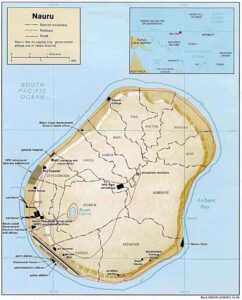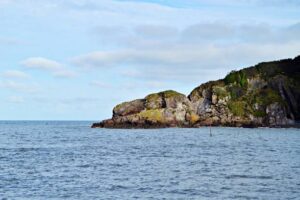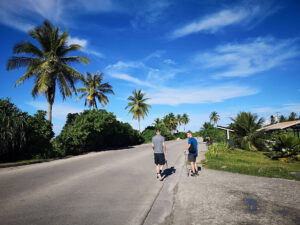Located in the northeastern part of Australia (in the Pacific Ocean), Nauru is the smallest island in the world. Life At Nauru and its economy depended on the rich phosphate reserves for decades. However, things did change with time, and the economy collapsed as the phosphate reserves were depleted. Leaving the government with no alternative to rely on.
Daily life with all the basic needs duly fulfilled became a challenge for the people of Nauru. Then how did the Nauruan government cope with such a disaster? What made them transform from a phosphate goldmine to a modern-day refugee center?
Life At Nauru – The Colonial Past
The formation of Nauru dates back to the pre-historic ages, from the excretion & carcasses of sea birds flying across the Pacific Ocean. In 1888 Nauru was under the rule of the Germans, covered by palm vegetation. After World War II, Japan occupied the same. Later, the UK realized the rich deposits of Phosphates (a primary source of phosphorus) in the premises and acquired mining rights. For years, the country was a backdrop for nations like New Zealand and Australia to build their agricultural industries. Nauru gained independence in 1968, and the government took over the mining operations.

Claim To Fame
Within two years of independence, in 1970, the Phosphate price rose from 10 USD per ton to 65 USD. At that time, the country’s GDP was 55,000 USD, second to Saudi Arabia. The government went into establishing a sovereign wealth fund – Nauru Phosphate Royalties Trust. Its primary focus was investing in real estate at the international level.
For those living outside Nauru, it was a serious FOMO, owing to the lifestyle the citizens there got to live. The government bought a fleet of Boeing 737 aircraft, the tax was virtually non-existent, and public services were free.
Reasons Behind The Downfall Of Life At Nauru
Life at Nauru was no less than a fantasy movie. People grew lazy, and many even stopped working. They bought big cars and spent days driving around the island. Also, these people spend vast amounts on shopping and expensive trips to foreign destinations. According to sources, “dollar notes were used as toilet paper.”
There was no one to work hard and grow natural produce. The island lived on fast foods and ate frozen preparations while the government looked after their daily expenses. This gave rise to severe problems with health. Diabetes is taking the form of an epidemic. Huge sums were channeled into foreign investments, and money slowly vanished from the country’s premises.

On A Journey Of Economic Revival
With time, the phosphate deposit of Nauru rolled out, and the country found itself on the verge of bankruptcy with 30% unemployment. Also, the Nauruan’s had almost forgotten to work by this time. The laborers from the neighboring island nations and China have done the heavy mining work till now.
The Nauran government is an absolute case of how unprecedented decisions can ruin an entire country’s economy. But the other islands have sought to learn from the same.
However, the government did not give up and sought multiple reforms to improve things and restore economic stability.
Relations With Australia
Nauru sought damage charges from Australia as ‘rehabilitation of the phosphate lands.’ Before WW II, the profits were settled between UK and Germany. Later on, it was divided between Australia and UK. Finally, in 1993 Australia agreed to pay 56 million AUD and another 50 million AUD the following year.
In the 2000s, Australia built an immigration detention facility on the island, which was then reopened in 2012. As per the estimates of the Asian Development Bank, this particular business drives 10% of the annual GDP of the island. Australia pays 3000 AUD for one refugee every three months.
Life At Nauru As A Refugee Center With Multifarious Visa Rates
Also, the government of Nauru collects foreign currency in bulk by taking in refugees and eventually allowing them to settle in Australia. It has raised the price of business visas from 400 AUD – 6000 AUD. For journalists, it is 8000 AUD which was earlier 200 AUD. Only Chinese-run businesses are allowed to launch on the Nauru premises.
The Fish Cooperation Accord
In 2004 Nauru and ROC (Republic Of China) signed a fishing cooperation accord to strengthen the trade relations between the two countries. The agreement was renewed in 2016, and Nauru receives adequate economic aid to improve its fishing industry and indulge in sustainable fishing practices.

The Nauru Education Assistance Trust Scheme (NEATS)
Education is free and made mandatory until the age of 18. However, with the rise in poverty and unable to deal with the scarcity of food and water, half of the children tend to attend secondary schooling. To combat the situation, the government came forward with NEATS propaganda. Under this, the students get $5 per day for attending school. This they can set aside for their adulthood and use to establish a business or purchase a home. As a result, attendance increased by 11% from 2016 to 2018.
Today, Nauru’s political, social, and economic situations are in transition, trying to rectify the deeds from the past. But still, it has a long way to go.



